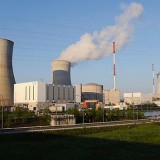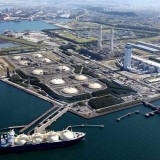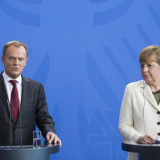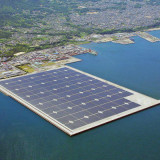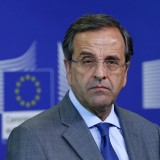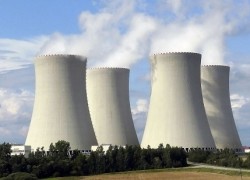
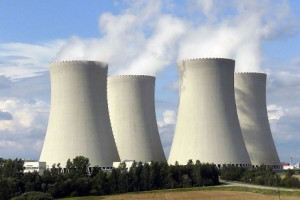 The role of nuclear energy is the main topic of the political debate in different parts of European countries. This week in the two countries will have discussions about their dependence on nuclear energy. Today the Finnish Parliament will discuss the plan for a new nuclear facility, while the French Parliament will vote on the energy package, which provides for the reduction of dependence on nuclear energy. Last week, the European Commission (EC) has approved the plans of the UK to build a new nuclear power plant. The facility must provide 7% of the energy of the United Kingdom from 2023 Also last week, EU Competition Commissioner Joaquin Almunia said that British support for the project does not constitute illegal.
The role of nuclear energy is the main topic of the political debate in different parts of European countries. This week in the two countries will have discussions about their dependence on nuclear energy. Today the Finnish Parliament will discuss the plan for a new nuclear facility, while the French Parliament will vote on the energy package, which provides for the reduction of dependence on nuclear energy. Last week, the European Commission (EC) has approved the plans of the UK to build a new nuclear power plant. The facility must provide 7% of the energy of the United Kingdom from 2023 Also last week, EU Competition Commissioner Joaquin Almunia said that British support for the project does not constitute illegal.
The environmentalists fear that the approval of the British project will set a precedent and encourage other countries of the European Union (EU) to subsidize nuclear power plants. Regardless of government subsidies, nuclear power is likely to remain an important source of energy for a significant part of the EU. Half of the 28 member states of the European Union have nuclear power plants, which produce 14 percent of the energy consumed in the building. In France, for example, nuclear power plants produce three-quarters of the electricity consumed in the country.
After the Fukushima nuclear accident in March 2011, several European countries decided to reduce its dependence on nuclear energy or completely abandon the construction of new reactors. Germany, for example decides to stop working all nuclear power plants by 2022, but Switzerland is not an EU member, has decided to scrap plans for new reactors and gradually cease production of nuclear energy by 2034. The plan to revive nuclear energy in Italy failed miserably: 94% of voters opposed nuclear power in a referendum held three months after the Fukushima accident. In Italy, nuclear power plants operating in the period from 1960 to 1990 because of the strong public reaction to the accident at the Chernobyl plant were closed.
Meanwhile, in 2012 the Belgian government led by Prime Minister Elio Di Rupo, has decided that the country should be free of nuclear projects by 2025 The first step is the closure of two units next year. Closure, however, will be delayed. Belgium is facing a possible energy shortages this winter, ironically, because three other nuclear reactors had to suspend work. Since the Fukushima accident have passed more than three and a half years and it seems public opposition to nuclear energy began to die out. A similar phenomenon was seen in the Chernobyl accident - strong opposition immediately after the incident. A year later, the number of opponents of nuclear energy decreases.
It’s hard to talk about “European attitude” towards nuclear energy. The results of the latest poll by the European Commission show large differences between countries in the community. Public opinion on the issue varies across the continent and has cultural and historical roots. In Britain, however, attitudes have remained relatively stable despite the Fukushima accident. However, nuclear energy can help some countries to meet their emission reduction emitted due to fossil fuel power plants. The European leaders to set goals for change in 2030.

